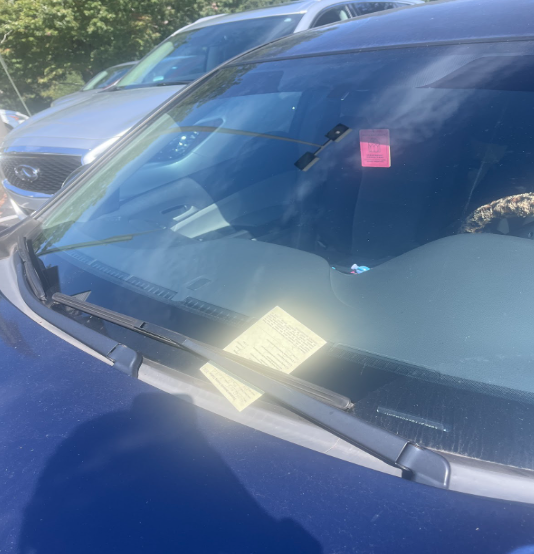With President Donald Trump in office, he has promised to take several actions during his Presidency. One policy in particular that may affect current students is claims about the Department of Education. Will Donald Trump’s presidency affect your FAFSA or financial aid? While it is possible, there is no definite answer.
Agenda 47 is a 20-point platform of items that Trump plans to address. Though points 16 and 18 mention college, his initial platform does not mention abolishing the U.S. Department of Education. However, at a Wisconsin rally in September 2024, he stated, “We will ultimately eliminate the federal Department of Education.”
Experts have stated that dismantling the federal Department of Education is unfeasible and unlikely to happen. In theory, the department was created by Congress and would require a 60-vote majority to abolish it. There is no other path to that goal.
However, on March 20, 2025, Trump sidestepped Congress by signing an executive order to begin dismantling the Department of Education.
The department’s reach is far and does not just handle student aid. The four core functions of the organization are establishing policies on financial aid for education and its distribution, collecting data on American schools, prohibiting discrimination, ensuring equal access to education and working with other federal agencies to guarantee education for homeless and runaway youth.
Additionally, they give funds to schools that support children with disabilities and children from low-income households.
Colleges are not typically federally funded, but institutions such as Gallaudet University, the National Technical Institute for the Deaf and the private research college Howard University receive federal support.
An essential piece of information to highlight is that the department does not determine what curriculum to teach in schools or the educational standards for college; school boards and districts make those decisions at the K-12 level.
At the collegiate level, the state and faculty members of the school determine the curriculum.
“Sending education back to the states,” as Trump has declared a goal of the administration, is inconsequential because education is already handled by the states.
So, what does any of this information mean for the typical college student in America? The FAFSA, or Free Application for Federal Student Aid, is a required application to receive federal aid, funded by the Department of Education. It takes a student’s family finances and tax returns, calculates them and gives the student an amount of student aid based on that essential information.
Limiting the department’s budget directly affects the FAFSA, federal student loans and any Pell grants the student may be awarded.
“We currently do not know the federal Pell Grant maximum or minimum award amounts for the 2025-2026 semester as of right now,” An employee of Piedmont’s financial aid department said via email in December of 2024. “We are aware there is talk of eliminating the Department of Education, but it would require congressional approval, meaning it would have to pass both the House of Representatives and the Senate.”
The Department of Education budgets $31.1 billion for all grants. The federal government is most likely to award grants to students attending private, for-profit colleges, such as Piedmont, with 67% of students at these institutions receiving federal student aid. Additionally, 78% of students at Piedmont University receive financial aid. Piedmont requires all students to complete the FAFSA.
“I receive $38-39,000 in financial aid for a full year,” admitted a sophomore at Piedmont, who voted in the recent presidential election. “I’m definitely nervous about my future in college. Most of my financial aid comes from the school, but a good chunk of my aid comes from the federal government. I think there’s a solid chance that my cost of school will go up, which makes me worried. I’m just hoping by some chance that it won’t be affected, but I’m trying not to think about it.”
There is no way to know for sure whether Trump’s policy on education will affect financial aid; however, be prepared for funding in higher education to shift.
Trump has recently appointed Linda McMahon, a former WWE co-founder and head of the U.S. Small Business Administration, to head the Department of Education. Under her leadership, the department initiated a mass layoff that affected nearly 50% of all employees.
Another significant change for the department affects how students will repay their loans. Loans will now be handled by the Small Business Administration instead of the Department of Education.
However, the administration has gone through layoffs of its own, which include about 43% of its workforce.
For this plan to work, a student or their representative would take out a loan from the administration and promise to repay the money to the Department of Education.
Even so, there is no legal precedent or groundwork to support the transferring of funds between federal departments on such a large scale, which undermines the government’s ability to enforce repayment of the loan. Even slight declines in loan repayment will cost taxpayers more than $13 billion.
For worried college students, there are other ways to get financial help to pay for college.
“A simple internet search will pull up a host of scholarships and grants, such as a Georgia Futures’ scholarship search engine, as well as many other helpful websites. As always, students are welcome to reach out to our office for assistance in finding financial aid,” said the Piedmont financial aid office.
The 2025-2026 FAFSA is available to any college student seeking financial aid. Instructions and frequently asked questions are linked.















